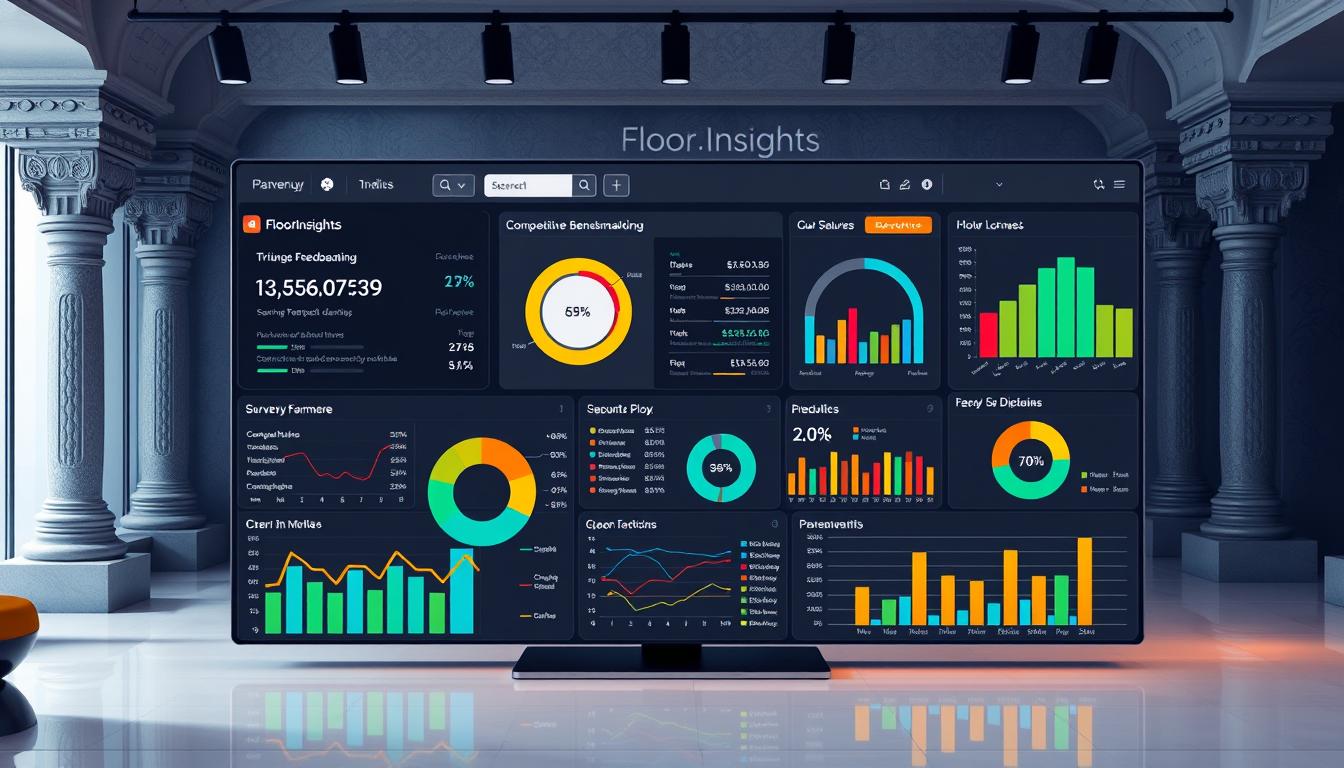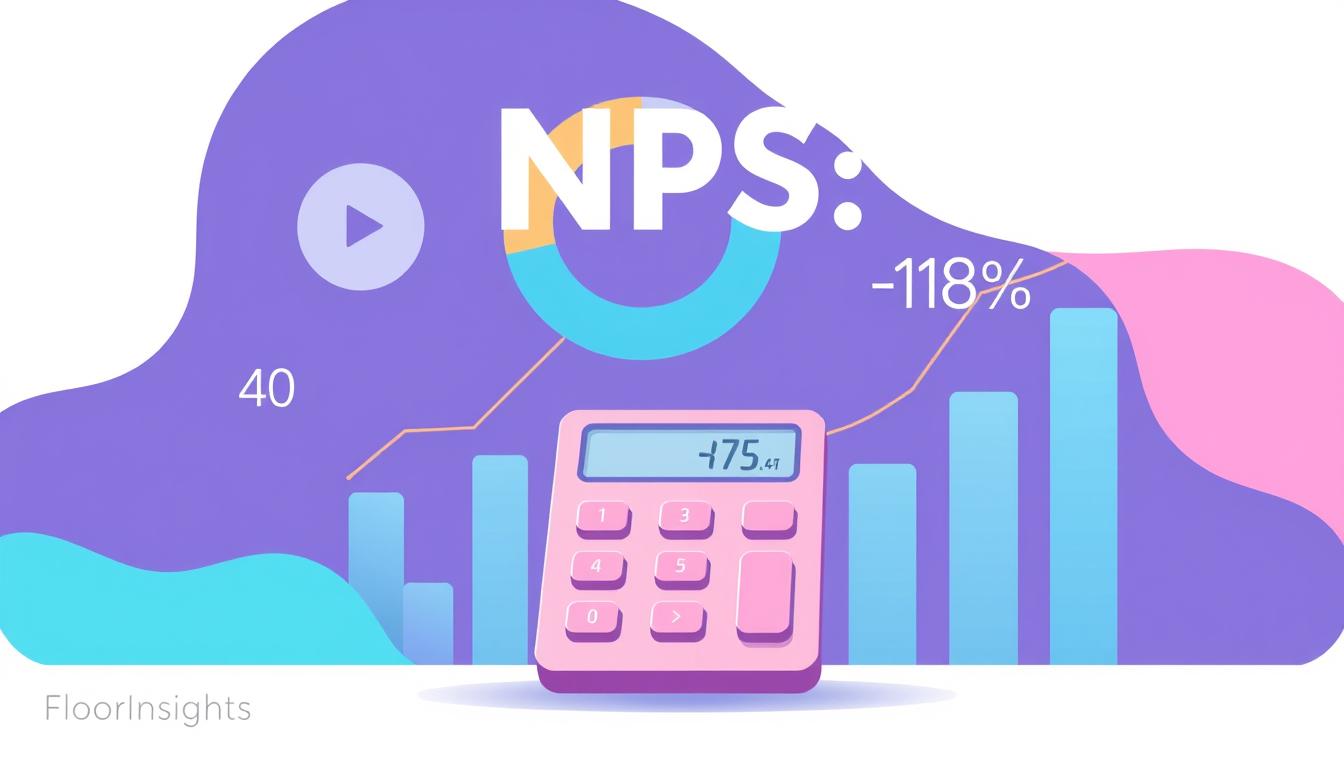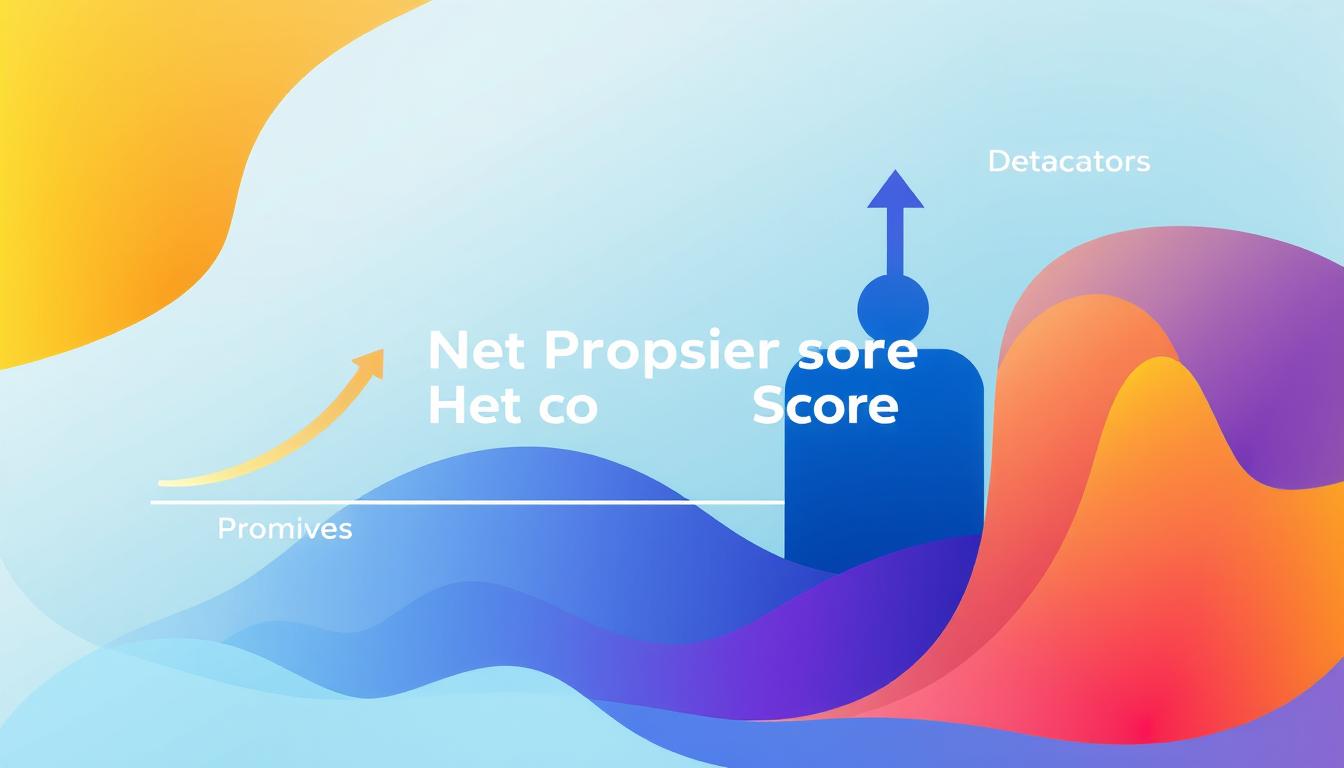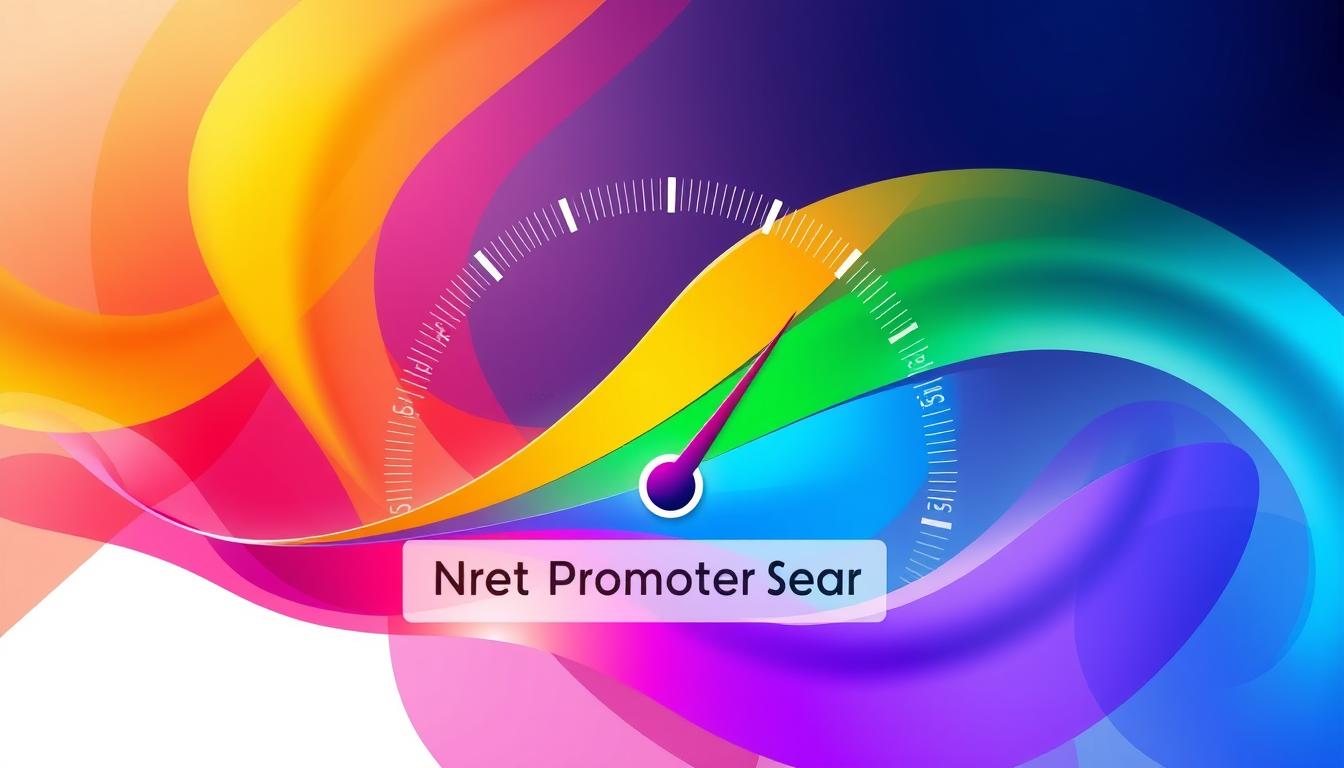The ever-evolving global market demands that organizations constantly assess their performance against competitors. We recognize the significance of the Net Promoter Score (NPS) as a crucial tool for this purpose. By measuring customer loyalty, NPS offers invaluable insights that help us establish competitive benchmarking. It reflects how likely customers are to recommend our products or services, thereby indicating the overall customer experience. Utilizing an effective NPS survey platform allows us to systematically collect data and analyze trends, ultimately leading to strategies that enhance customer loyalty. This approach is particularly vital in India’s competitive landscape, where remaining ahead of the game is essential.
Key Takeaways
- NPS serves as a critical metric for assessing customer loyalty.
- Effective competitive benchmarking relies on accurate insights from NPS data.
- Leveraging an NPS survey platform enhances our understanding of customer sentiment.
- Establishing benchmarks helps us align our strategies with market leaders in India.
- Continual assessment through NPS empowers us to make informed decisions.
Understanding NPS and Its Importance
NPS, or Net Promoter Score, serves as a powerful tool for assessing customer loyalty. This metric is derived from a single-question survey that asks customers how likely they are to recommend a brand. By analyzing responses, we can categorize customers into three groups: Promoters, Passives, and Detractors. This classification provides us with a clear snapshot of overall customer sentiment.
The importance of NPS becomes evident when we consider its ability to track customer experience over time. As businesses, we can utilize NPS to compare our results against industry benchmarks. This insightful data allows us to make informed decisions based on real customer feedback. Globally, companies recognize the significance of NPS as it fosters a culture centered on customer-centricity.
By implementing NPS, we can prioritize improvements that enhance the customer journey. This focus on loyalty measurement not only strengthens our relationship with customers but also drives sustainable growth. Understanding the importance of NPS empowers us to better meet our customers’ needs and expectations.
The Role of Customer Experience Management
Customer experience management is crucial in today’s competitive landscape, particularly within the context of India’s diverse consumer market. We aim to strengthen our connection with our customers through tailored strategies that resonate with their expectations. By focusing on enhancing customer service at every touchpoint, we can foster loyalty and satisfaction.
Integrating NPS into our customer experience management processes serves as a beacon for actionable insights along the customer journey. NPS provides a clear picture of customer sentiment, allowing us to identify areas that require improvement. This alignment between customer feedback and our service offerings ensures a continuous loop of improvement, which benefits both our customers and our business.
Utilizing NPS within our customer experience framework enables us to proactively engage customers. We can refine our approach based on real-time feedback, ultimately reinforcing our commitment to enhancing customer service. This strategic use of NPS not only contributes to our ability to support customers effectively but also leads to increased retention and repeat business.
Benefits of Using NPS for Benchmarking
Utilizing NPS provides numerous benefits that enhance our performance in competitive benchmarking. By employing this method, we can create a comparative analysis framework that sheds light on where we stand in relation to our competitors. This clarity regarding market positioning is invaluable.
NPS serves as an early warning system, allowing us to detect shifts in customer loyalty and satisfaction. Proactively conversing with our customers enables us to tackle concerns before they escalate, ensuring we remain aligned with their expectations.
Through benchmarking with NPS, we uncover opportunities for improvement in both our products and services. This process fosters stronger customer relationships, which is essential for enhancing customer loyalty. By maximizing the NPS benefits, our organization positions itself to adeptly navigate the fast-paced market landscape in India.
NPS Survey Platform for Effective Measurement
An effective NPS survey platform is critical for accurately capturing customer loyalty insights. By leveraging advanced survey software, organizations can obtain actionable data that drives improvement in customer experiences. Key features of a comprehensive platform significantly impact the quality of effective measurement.
Features of a Comprehensive NPS Survey Platform
When evaluating an NPS survey platform, we should prioritize the following essential features:
- Customizable survey templates that align with our branding
- Real-time analytics that provide immediate feedback on customer sentiments
- Robust reporting capabilities for in-depth analysis
- Integration with existing CRM systems for seamless data management
- Automated follow-up systems to enhance customer engagement
- Segmentation of feedback based on different demographic factors
These features facilitate a holistic understanding of customer preferences and behaviors, enabling us to make informed business decisions.
Choosing the Right NPS Survey Platform
Our choice of an NPS platform should reflect various factors to ensure optimal data collection:
- Cost-effectiveness: We must assess our budgetary constraints while ensuring the platform delivers value.
- User-friendliness: A straightforward interface will promote ease of use among our teams.
- Technical support: Reliable customer service is essential for smooth operation and troubleshooting.
Thoughtful selection of an NPS survey platform enhances our ability to gather meaningful feedback, ultimately leading to improved customer satisfaction and business success.
How NPS Drives Customer Loyalty Tracking
NPS serves as a vital tool for customer loyalty tracking. Regularly measuring customer satisfaction enables us to discern the effectiveness of our initiatives aimed at promoting retention. By analyzing NPS results, we can uncover patterns that reveal trends in customer loyalty and retention. An increasing NPS score indicates that our customer-centric strategies are resonating with our audience, resulting in enhanced loyalty and engagement.
Understanding the relationship between our NPS scores and customer loyalty is particularly significant for businesses in India. Customers respond positively to businesses that actively track their satisfaction and make adjustments based on feedback. By prioritizing customer loyalty tracking through NPS, we remain agile in our approach, allowing us to refine our customer-centric strategies effectively. This focused attention on nurturing relationships directly contributes to sustained retention rates and long-term success.
| Aspect | Impact of NPS on Customer Loyalty |
|---|---|
| Customer Satisfaction | Regular feedback helps gauge satisfaction levels, enabling timely interventions. |
| Retention Rates | Higher NPS correlates with improved retention rates and customer loyalty. |
| Customer Engagement | NPS insights help tailor communications, enhancing engagement strategies. |
| Business Growth | A loyal customer base drives repeat business, contributing to sustainable growth. |
Gathering Insights through Feedback Analytics
In today’s competitive landscape, feedback analytics serves as a pivotal tool in understanding customer sentiments, particularly through the lens of NPS. By diligently analyzing customer feedback, we gain powerful insights that highlight areas of dissatisfaction, identify service gaps, and pinpoint product deficiencies. This process is essential not only for enhancing our customer satisfaction but also for fostering loyalty.

Integrating Feedback Analytics into Business Strategies
Integrating feedback analytics into our business strategies allows us to make data-driven decisions that significantly impact our overall performance. By leveraging insights obtained from NPS surveys, we can identify key drivers of customer happiness and loneliness. This understanding helps us to:
- Enhance product development initiatives based on customer input.
- Improve service offerings, addressing the specific needs of our clients.
- Prioritize areas for operational efficiency, aligning our efforts where they matter most.
In India’s fast-paced market, where consumer preferences can shift rapidly, prioritizing feedback analytics becomes crucial. Utilizing NPS in conjunction with thorough feedback analysis positions us strategically, ensuring we remain responsive to our customer base and their evolving requirements.
Utilizing Sentiment Analysis for Competitive Insights
Sentiment analysis serves as a powerful tool to evaluate customer feedback, allowing us to understand the emotions and opinions connected to our products or services. By integrating this analysis with NPS, we enhance our grasp of customer attitudes compared to our competitors. This dual approach provides a comprehensive view of the competitive landscape to drive better strategic decisions.
Understanding customer sentiment is vital, especially in a diverse market like India, where preferences can vary significantly. By analyzing customer feedback through sentiment analysis, we can pinpoint areas of dissatisfaction and satisfaction, which allows us to develop targeted actions to improve our offerings.
- Identify positive and negative sentiments about our brand.
- Gauge customer emotions and experiences in real-time.
- Utilize competitive insights to adapt our strategies effectively.
- Enhance overall customer experience based on feedback analysis.
By actively utilizing sentiment analysis, we can not only refine our NPS metrics but also realize significant strides in enhancing customer loyalty and satisfaction. This proactive approach to understanding competitive insights will help us remain agile in the fast-paced Indian market.
Voice of Customer: The Key to Understanding Customer Sentiment
The Voice of Customer (VoC) is an essential concept in grasping our customers’ preferences, needs, and overall perceptions of our products and services. Capturing customer feedback through various channels offers us a window into their experience, which is vital for effective decision-making. Utilizing NPS insights, we can confidently assess and analyze the sentiment expressed by our customer base.
Listening to the VoC is fundamental for understanding sentiment. By employing targeted surveys and feedback mechanisms, we uncover valuable insights that allow us to prioritize improvements. This approach directly influences our product development strategies and customer support initiatives, aligning them closely with what matters most to our clients.
- Gathering comprehensive customer feedback.
- Identifying key areas for improvement.
- Enhancing customer loyalty and advocacy.
Embracing VoC methodologies empowers us to create a deeper connection with our customers. Through this understanding, we can innovate and tailor our offerings, which ultimately fosters a sense of loyalty and community among our customer base.
NPS Benchmarking: Setting Competitive Standards
NPS benchmarking plays a pivotal role in shaping our strategies for measuring customer satisfaction and loyalty. By analyzing industry benchmarks and competitors’ NPS scores, we can establish competitive standards that guide our performance evaluation. Understanding these standards enables us to identify specific areas for improvement and set realistic goals tailored to our market landscape.
Through effective NPS benchmarking, we gain a clearer picture of what constitutes exceptional customer value within our industry. This insight allows us to implement targeted initiatives that enhance customer experiences and elevate satisfaction levels. Indian businesses can leverage these practices to maintain a competitive edge and foster continuous innovation in their offerings.
Establishing robust benchmarks provides us with the necessary framework to understand our competitive landscape better. By measuring our NPS against established norms, we align our strategic objectives with industry expectations, ensuring that we not only meet but exceed our customers’ needs.
In embracing NPS benchmarking, we also create a culture of accountability and excellence within our organizations, driving us to consistently enhance our services and deliver unparalleled customer value.
Implementing Multichannel Surveys for Broader Reach
In today’s diverse market, we find that implementing multichannel surveys plays a crucial role in obtaining customer feedback. By utilizing various platforms such as email, mobile apps, websites, and social media, we enhance our ability to connect with a wider audience and achieve a broader reach.
This approach allows us to conduct surveys that are accessible to all customer segments, ensuring inclusive data collection. Different survey methods might resonate better with different demographics. As a result, embracing multichannel surveys lets us capture unique customer experiences and insights that are paramount for our strategy.
As we navigate the multicultural landscape, particularly in a diverse country like India, understanding the preferences and opinions of our respondents is essential. By gathering comprehensive customer feedback via various channels, we can tailor our offerings and improve overall engagement strategies.
Leveraging Real-Time Feedback for Agile Decision Making
In today’s fast-paced market, utilizing real-time feedback is essential for businesses aiming to enhance their responsiveness to customer needs. By actively collecting customer feedback, we position ourselves to gain instantaneous insights through methods such as NPS surveys. This process facilitates agile decision making, which allows us to adapt our strategies based on immediate customer opinions and concerns.
Embracing real-time feedback mechanisms enables us to respond to customer feedback swiftly. Customers increasingly expect timely resolutions, and our ability to meet this expectation plays a crucial role in maintaining loyalty and satisfaction. The responsiveness characterized by real-time feedback not only addresses existing issues but also helps us to anticipate future challenges.
Engaging in agile decision making guided by real-time feedback empowers us to refine our customer experiences continuously. This approach strengthens our competitive edge and ensures that we remain aligned with evolving market demands. In a landscape where change is the only constant, such adaptability enabled by a focus on real-time customer feedback becomes a vital asset for brands operating in India.
| Aspect | Traditional Feedback | Real-Time Feedback |
|---|---|---|
| Response Time | Delayed insights | Instant insights |
| Decision Making | Reactive approach | Agile and proactive approach |
| Customer Engagement | Periodic surveys | Continuous engagement |
| Adaptability | Slow to adapt | Quick to adapt |
| Overall Satisfaction | Variable outcomes | Consistently higher satisfaction |
Incorporating real-time feedback mechanisms is a strategic move that enhances our inferencing capabilities, ultimately leading to stronger customer relationships and improved business outcomes.
Conclusion
In summary, harnessing NPS as a tool for competitive benchmarking is vital for our success in India’s evolving marketplace. By effectively measuring customer loyalty and satisfaction, we can gain essential insights that not only inform our business strategies but also enhance our overall performance. Understanding how NPS can serve as a powerful indicator of customer experience allows us to navigate market complexities more adeptly.
Focusing on customer experience management and employing feedback-driven strategies will fortify our competitive advantage. As we integrate feedback analytics and real-time data collection into our operations, we position ourselves to make informed decisions that reflect our customers’ true needs and preferences. This proactive approach fosters a customer-centric mindset that can significantly bolster customer loyalty.
Ultimately, as we leverage these insights and tools, we not only improve our offerings but also create lasting relationships with our customers. By committing to understanding and responding to customer feedback, we pave the way for sustained growth and success in the competitive landscape.
FAQ
What is an NPS survey platform?
An NPS survey platform is a specialized tool designed to measure customer loyalty and satisfaction through Net Promoter Score surveys. It helps organizations systematically collect feedback, analyze trends, and implement strategies to enhance the overall customer experience by providing insights on how likely customers are to recommend their products or services.
Why is NPS important for customer experience management?
NPS is crucial for customer experience management because it allows businesses to track customer loyalty over time. By categorizing respondents into Promoters, Passives, and Detractors, we gain valuable insights into customer sentiments, enabling us to identify areas for improvement along the customer journey.
How does benchmarking with NPS benefit organizations?
Benchmarking with NPS provides organizations with insights into their market positioning by comparing their scores against industry averages and competitors. This practice helps identify strengths and weaknesses, allowing businesses to make data-driven decisions that enhance customer relationships and drive loyalty.
What features should we look for in an NPS survey platform?
When selecting an NPS survey platform, key features to consider include customizable survey templates, real-time feedback analytics, robust reporting options, and integration capabilities with existing CRM systems. User-friendliness and cost-effectiveness are also important for ensuring optimal data collection and insights.
How can we utilize feedback analytics for improving customer experience?
By analyzing customer feedback through feedback analytics, we can uncover insights related to customer satisfaction and identify gaps in our products or services. These insights help us make informed, data-driven decisions to enhance both our offerings and overall customer satisfaction.
What is sentiment analysis and how does it relate to NPS?
Sentiment analysis is the process of evaluating customer feedback to understand their emotions and opinions about a brand. When combined with NPS, it enhances our understanding of how customers feel about our products or services compared to competitors, allowing us to address negative sentiments more effectively.
How does the Voice of Customer (VoC) relate to NPS insights?
The Voice of Customer (VoC) captures the wants and needs of customers regarding our offerings. By leveraging NPS to gather VoC data, we can obtain comprehensive feedback that helps us understand customer sentiments, prioritize improvements, and ultimately foster loyalty and advocacy.
Why should we implement multichannel surveys for customer feedback?
Implementing multichannel surveys enables us to collect customer feedback across various platforms, increasing our reach and response rates. This inclusive approach ensures that we capture diverse customer experiences, which is particularly essential in India’s multicultural market landscape.
What advantages does real-time feedback offer to businesses?
Real-time feedback allows us to respond promptly to customer opinions and concerns. By leveraging immediate insights from NPS surveys, we can make agile decisions that enhance customer experiences, ensuring our responsiveness in a rapidly changing market environment.
Related Posts
- NPS for Wealth Management Firms: Key Strategies for Success – NPS and Financial Services
- How NPS Can Help SMBs Compete with Larger Businesses – NPS for Small and Medium Businesses (SMBs)
- How Retailers Can Use NPS to Improve Product Offerings – NPS in Retail
- Using NPS Data to Drive Hyper-Personalization in Marketing – NPS and Personalization






